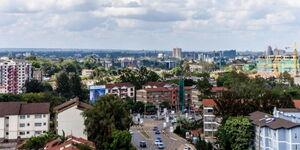Tough times may be in the offing for public university students after vice chancellors started exploring ways to raise fees when they re-open.
Appearing before the National Assembly Education Committee on Tuesday, September 29, one of the VCs disclosed that running universities had become difficult due to insufficient funds.
He further noted that institutions were facing a deficit of up to Ksh34 billion and were no longer able to remit statutory deductions.
"We have received so many complaints from universities because of inadequacy of funds to support their programmes, to pay their staff and to remit the statutory deductions.
"A number of VCs have even been arrested and taken to court to make them do the right thing in form of remitting the money to cooperatives societies to NSSF (National Social Security Fund)," he stated.
Nominated MP Wilson Sossion, who is a member of the committee, challenged them to find ways to generate their own income to run universities.
They, however, explained that the fee rate in use today was last reviewed in 1989 yet times had changed.
He also pointed out that the state paid a flat rate fee of Ksh70,000 per student regardless of their programmes.
"The rates being paid by students are rates of 1989. There has been no review and so the way the situation is now is that the government pays Ksh70,000 per academic programme per student," he added.
This is, however, not the first time VCs have sought to increase fees. In May 2019, they proposed to have tuition fees for government-sponsored students tripled.
At the time, they wanted the annual fees increased from Ksh16,000 per government-sponsored student to Ksh 48,000.
The demand caused tension among students who took to the streets claiming that if approved, the decision would be punitive for many needy students.
While this did not sail through, institutions of higher learning continued to experience increased financial pressure to maintain payrolls, with the Covid-19 pandemic hitting them hard.
{"preview_thumbnail":"/files/styles/video_embed_wysiwyg_preview/public/video_thumbnails/35iHqOG6wEk.jpg?itok=C4BOyn9I","video_url":"","settings":{"responsive":1,"width":"854","height":"480","autoplay":0},"settings_summary":["Embedded Video (Responsive)."]}












